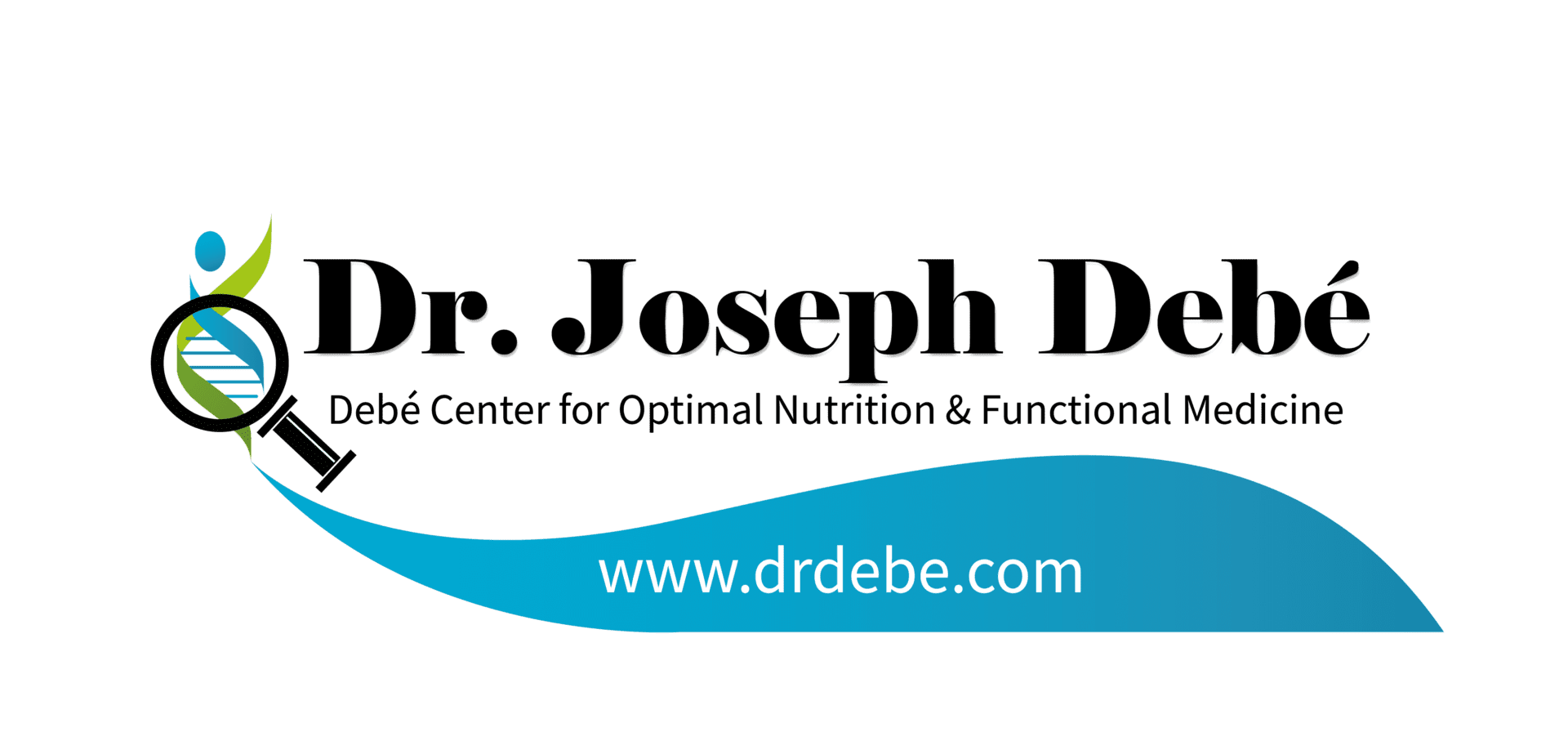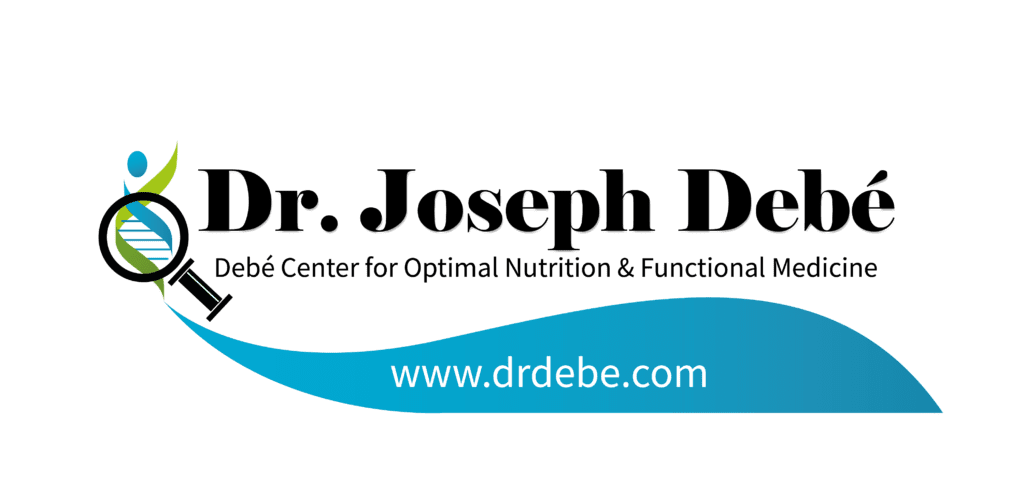by Dr. Joseph Debé
The general public has become well aware of the association between high levels of cholesterol in the blood and cardiovascular disease. However, the precise role that cholesterol plays in cardiovascular disease, the things that influence its metabolism, and the existence of other risk factors, are not common knowledge. There has been an overwhelming amount of research in this area, and much is yet to be learned. The following are what appear to me to be a few important pieces to this puzzle.
Cholesterol is an essential substance manufactured by the body. The body makes much more cholesterol than is eaten in the average American diet. It serves as a precursor to many hormones and is a component of cell membranes. However, when cholesterol levels in the blood climb too high, problems can result. It may come as a surprise to learn that most people do not experience an elevation in blood cholesterol from eating large amounts of cholesterol. Excessive intake of certain dietary carbohydrates and fats is usually the cause of high blood cholesterol. In general, these carbohydrates include simple sugars and refined white flour, such as breads, pastas, cookies, cakes, candies, and sodas, including all those supposedly healthy fat and cholesterol-free prepared foods on supermarket shelves. What’s more, excessive dietary carbohydrates can raise insulin levels, which is another risk factor for cardiovascular disease. The types of fats that can raise blood cholesterol are saturated fats, which are mostly found in animal sources, and hydrogenated vegetable oils, which are originally healthful fats that have been tinkered with by man to improve shelf life. Hydrogenated oils have been added to most commercially prepared foods. Some people are genetically prone to higher cholesterol levels. Even the “genetic type” of high cholesterol can be lowered by the proper type of dietary modification. Other causes of high cholesterol include hypothyroidism, toxicity, inflammation, oxidative stress, liver dysfunction, kidney dysfunction, infections, and stress. Magnesium, vitamin C, taurine and glycine are needed to excrete excess cholesterol from the body. Therefore, high cholesterol can be caused by inadequate levels of these nutrients.
Strangely enough, deficiency of certain types of essential fats can actually result in elevation of blood cholesterol levels and the production of other biochemicals that are also involved in cardiovascular disease. These essential fatty acids, linoleic acid and alpha linolenic acid, are found in various plant foods. I believe that the types of fat in the diet are much more important than the amount of fats in the diet. A 1995 study published in the journal Lipids, demonstrated this very nicely. One group of people was put on a high (39% of calories) fat – low carbohydrate diet and the other group of subjects followed a low (22% of calories) fat – high carbohydrate diet. Both groups ate the same type of fats in the same healthful proportions. At the end of the study, there were no differences between the two groups as far as blood levels of total cholesterol, HDL or LDL cholesterol. The low fat diet group was found to have higher levels of very low density lipoprotein and triglycerides – not a favorable change.
There are many other biologic chemicals, in addition to total cholesterol, that have been found to be related to cardiovascular disease. LDL and VLDL cholesterol, lipoprotein (a), Apolipoprotein B, and triglycerides produce varying degrees of risk to heart disease, whereas HDL cholesterol and Apolipoprotein A-1 are protective against cardiovascular disease. When these substances are found at abnormal levels, there are several other considerations besides the previous dietary advice. Cardiovascular exercise, smoking cessation, and consumption of high fiber foods, soy, raw monounsaturated fats (found in avocados, olives, cashews, almonds, pecans, filberts, and macadamia nuts) and cold water fish (salmon, mackerel, sardines to name a few) all can help. Several natural substances can also have powerful effects on normalizing these cardiovascular risk factors. These include chromium, berberine, carnitine, garlic, vitamin C, Insinase, plant sterols, fish oil, krill oil, pantethine, guggulsterone, red yeast rice extract, and niacin. A medical food called Ultra Meal Plus 360 is probably the most powerful natural supplement for reducing overall cardiovascular risk factors. Some of its active ingredients include Insinase, plant sterols, soy protein, fiber, magnesium, and folic acid.
There are several other biochemicals in the blood that are strongly correlated with cardiovascular disease that unfortunately are not yet measured routinely.
Homocysteine is a toxic amino acid that is formed as part of normal metabolism from the amino acid methionine. When homocysteine levels rise, vascular damage occurs. This damage to the lining of blood vessels plays a role in the formation of plaques and the whole atherosclerotic process. The body has ways of converting homocysteine into other, innocuous biochemicals. Folic acid, vitamins B12 and B6, and betaine all can help to lower homocysteine levels. A recent study found that heavy coffee consumption was associated with higher levels of homocysteine. Other factors that contribute to elevated homocysteine include alcohol consumption, genetics, toxicity, smoking, certain medications, menopause, insulin resistance, hypothyroidism, and kidney failure.
Another one of the largely ignored risk factors is a protein called fibrinogen. Fibrinogen appears to be of equal or greater importance than total cholesterol in promoting cardiovascular disease. It does so by stimulating blood clot formation. Females and blacks tend to have higher fibrinogen levels. Smoking, oral contraceptive use, inactivity, obesity, mental stress, diabetes, hypertension, and inflammation all are associated with higher levels of fibrinogen. Exercise, weight loss, and consumption of garlic, alcohol, fish oil, vitamin E, niacin, gingko biloba, and bromelain all help to lower fibrinogen levels. An enzyme from earthworm called lumbrokinase is perhaps the most effective treatment for elevated fibrinogen.
Recent research has found a correlation between elevated blood levels of C-reactive protein and cardiovascular disease. C-reactive protein is a marker of inflammation. Its elevation has been linked with ischemic stroke and myocardial infarction (including those heart attacks that kill without being preceded by any warning signs). C-reactive protein elevations can precede a first myocardial infarction by six or more years. When C-reactive protein is found to be above normal levels, an attempt should be made to determine the underlying cause of the inflammation. It appears that one cause is infection with bacteria or viruses. Exposure to toxins and antigens, including food allergens, is another cause of inflammation. Arachidonic acid, a fatty acid found in animal products and shellfish, is to inflammation what gasoline is to fire. Excessive dietary refined carbohydrates also can cause inflammation. Other contributors to inflammation include insulin resistance, advanced glycation endproducts, excessive visceral (abdominal) fat, inadequate sleep, hormonal imbalances, dysbiosis (imbalance in the types of organisms inhabiting the gastrointestinal tract), stress (including feelings of hostility and depression), and mechanical trauma, such as that produced by spinal misalignments. Smoking cessation, dietary modification, nutritional supplements and other natural approaches can all help reduce inflammation.
Lipid peroxides can also be measured in blood or urine to assess risk to cardiovascular disease. High levels of these compounds result from free radical damage. Free radicals are highly reactive molecules that, when unregulated, can cause damage throughout the body. Free radical damage to the lining of the blood vessel wall and to LDL (bad) cholesterol appear to be pivotal steps in the initiation of atherosclerosis. In fact, studies have shown that normal blood cholesterol is relatively harmless. It is when the cholesterol becomes altered by free radical damage that it produces harm. The focus, therefore, should be on reducing sources of free radicals and increasing antioxidant defenses. Any type of damaged dietary fat or oil is a source of free radicals. These include fried or overcooked foods containing fats or cholesterol and improperly processed oils (which, with the exception of olive oil products, are the only type of oil sold in supermarkets). Well-cooked animal products (like a steak) contain AGEs (advanced glycation endproducts), chemicals that damage cholesterol, cause inflammation and contribute to cardiovascular disease through other mechanisms. Cigarette smoking, pollution, heavy metals, and toxins are other sources of free radicals. Inflammation, insulin resistance, hypoxia (low oxygen states, such as that produced by anemia), and poor mitochondrial function (resulting from toxicity, nutrient deficiency, hypothyroidism, lack of exercise) all increase oxidative stress or free radicals. Antioxidants to protect against free radical damage are found in unrefined plant foods (fruits, vegetables, legumes, nuts, seeds, and grains), tea, coffee, and red wine. There is also value in using supplements of vitamin C, carotenoids, tocotrienols, grape seed extract, green tea extract, curcumin, coenzyme Q10, glutathione, lipoic acid, pomegranate extract, and vitamin E, to name a few. A recent study showed that 400 iu of vitamin E may be the minimum daily intake required to protect LDL cholesterol from free radical damage. Use natural vitamin E (d-alpha tocopherol or, preferably, mixed tocopherols) instead of the inferior synthetic (d,l-alpha tocopherol) vitamin E. Substituting dietary monounsaturated for polyunsaturated fats will also result in decreased free radical damage to LDL cholesterol, as will supplementing with a liquid form of lecithin.

